How a Swiss decision changed football history
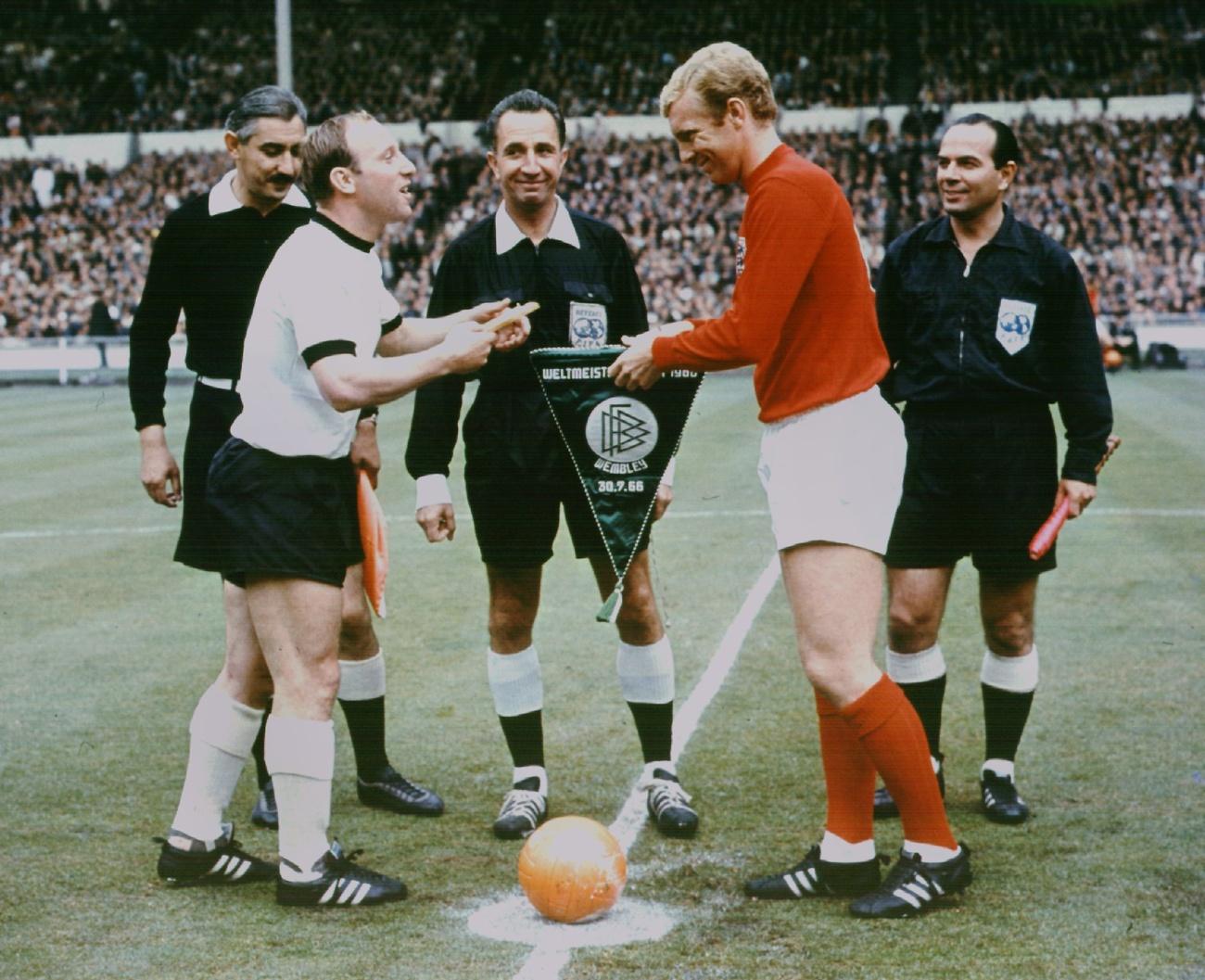
Few English football fans will have heard of Gottfried Dienst, but the Swiss had a significant influence on world football and English culture. Dienst, born exactly 100 years ago, was the referee when England beat West Germany in the final of the 1966 World Cup.
“I asked him in English ‘Is it goal?’ and he replied, ‘Yes, the ball is behind the line’ and pointed again with his flag to the centre circle. It was then clear to me.”
That was Dienst referring to his high-pressure conversation with his assistant referee and his subsequent decision to award Geoff Hurst’s controversial goal. A decision that not only meant England took a 3-2 lead but also ensured that Dienst would never have to buy another drink – at least in England.
“Gotti” Dienst was born in Basel on September 9, 1919. He played for FC Basel from 1932 to 1944 and then for amateur side FC Kleinhüningen until 1948, when a chronic knee problem resulted in a switch to refereeing.
When not working as a supervisor in a Basel telephone company, he worked his way up through the divisions, refereeing his first match in the top Swiss league in 1953 and his first international match in 1957, when Scotland beat world champions West Germany 3-1.
Big matches that followed included the 1961 European Cup Final in Bern, a World Cup semi-final in Chile in 1962 and the Europa League Final in Milan in 1965. So Dienst had plenty of experience by the time of the 1966 World CupExternal link in England.
In that tournament he refereed a group match between Italy and Chile but was not originally due to officiate the final. Rudolf Kreitlein, a German who co-developed the idea of yellow and red cards, was first choice but because West Germany were playing, Dienst was called up.
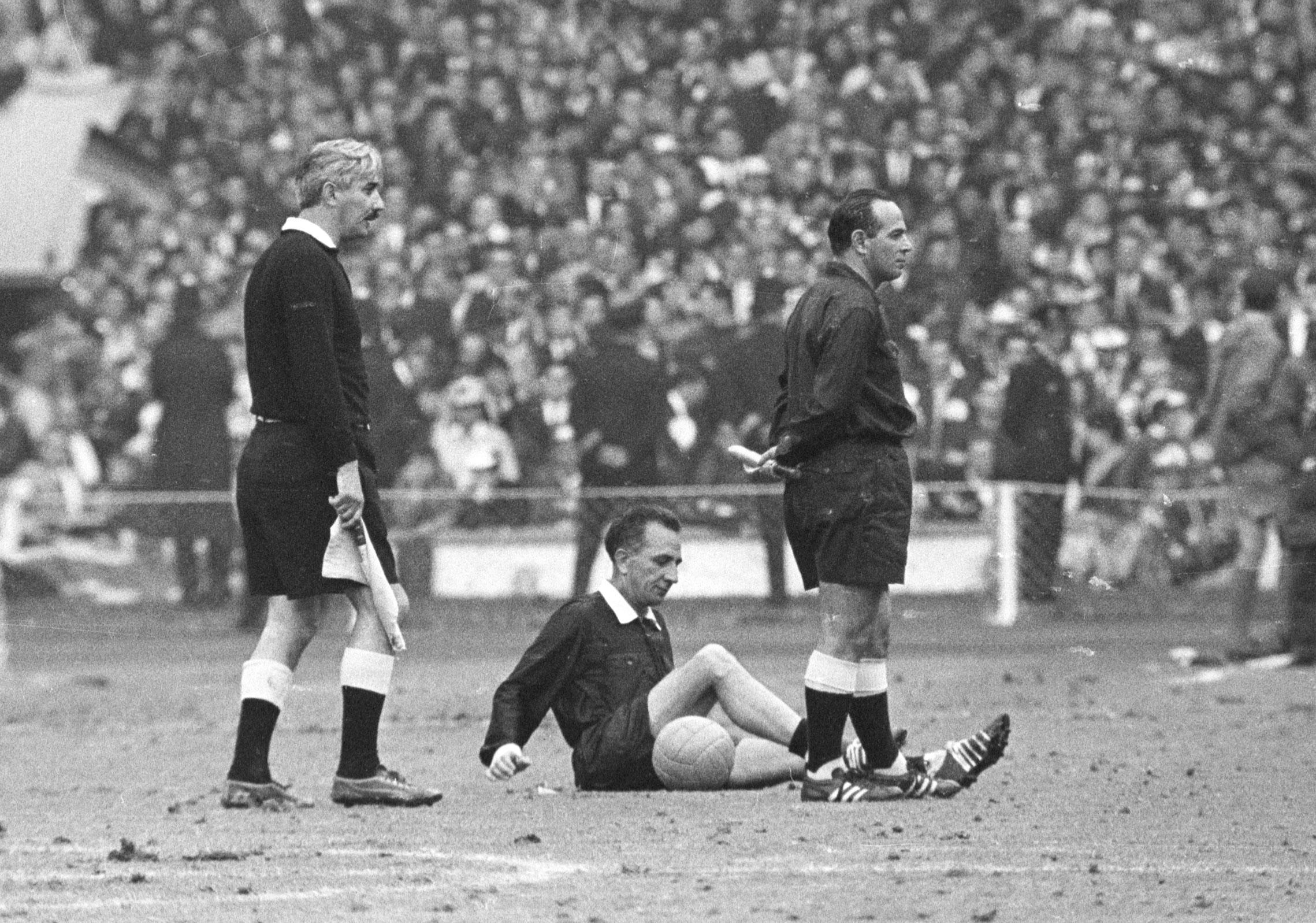
Inconclusive
After an eventful 90 minutes the score stood at 2-2. Dienst blew the whistle for two more 15-minute halves. And then, in the 101st minute, came the most-discussed event in football history.
Geoff Hurst’s shot hit the underside of the crossbar, flew down over the goal line before bouncing back out. Goal! Or was it?
Dienst – like Hurst – has admitted his view was blocked and he couldn’t say whether the ball was completely over the line – as it has to be for a valid goal. He ran over to the assistant referee, Tofiq Bahramov from Azerbaijan, then part of the Soviet Union.
“Bahromov’s body language – every inch – told me that he meant ‘goal’,” Dienst said a year later in an interview for the photo book “The Goal of the Century”.
He said Bahramov told him three or four times “Is Goal, goal, goal” and pointed with his flag to the centre circle. “He was waving with his left arm,” Dienst said. “I made my decision on the spot.”
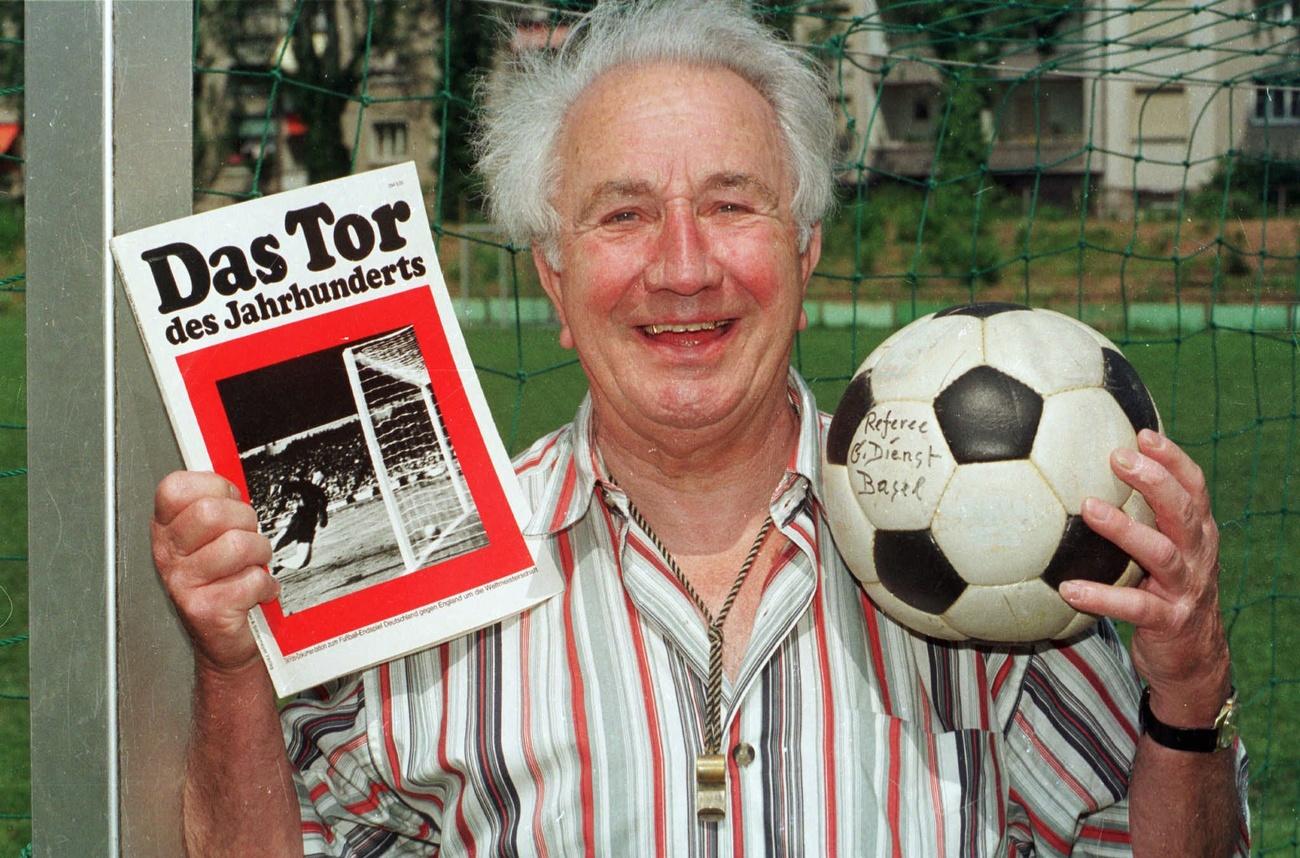
The video evidence is inconclusive, but even the BBC described the goalExternal link as “dubious”. Whatever the truth, the match was decided when Hurst scored his hat-trick in the final minute. The 4-2 victory was the first – and only – time England have won the World Cup.
Dienst’s decision was watched by almost 100,000 people in Wembley Stadium, including the Queen, and more than 400 million around the world.
Refereeing life
Gottfried Dienst continued refereeing until he reached the age limit of 48. His last match was the final of the 1968 UEFA European Championship. He had officiated 1,224 matches over 20 years.
He then became a refereeing instructor, president of the refereeing commission for northwest Switzerland and a refereeing observer for league games.
“I would be a referee again,” he once said, according to a profileExternal link in Munzinger, a German encyclopaedia. “It has really helped me in everyday life when I say to myself, ‘You’re the one who stands in front of 22 players and decides’.”
He also advised the next generation of referees not to go crazy with cards. “Speaking to the players was a lot more effective,” he said. “You simply had to do so with a forceful demeanour and not, as often today, with a laugh.”
Dienst died in Basel on June 1, 1998. His obituaryExternal link in the German news magazine Der Spiegel said he often returned to Wembley “to tell his story to whoever was interested”.
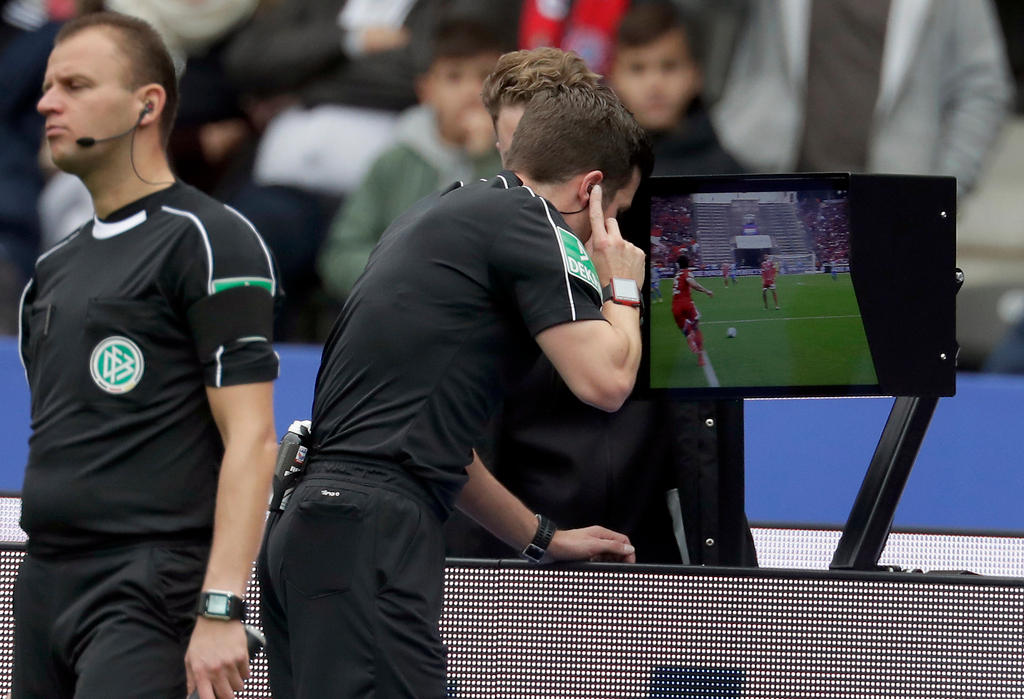
More
Video replays set to be used at football World Cup

In compliance with the JTI standards
More: SWI swissinfo.ch certified by the Journalism Trust Initiative

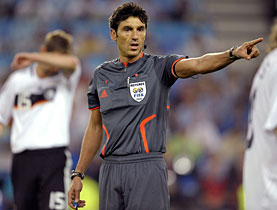
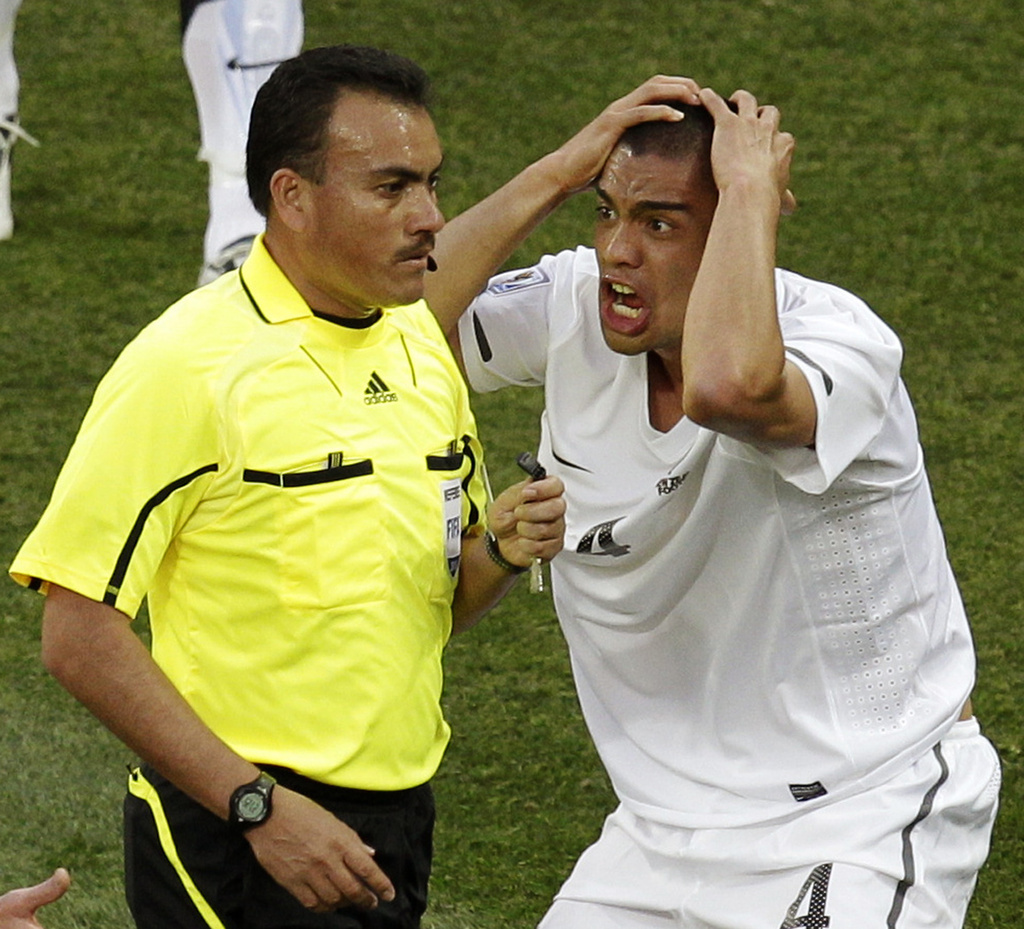
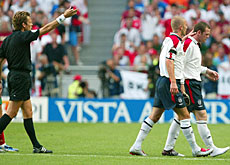
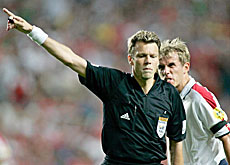
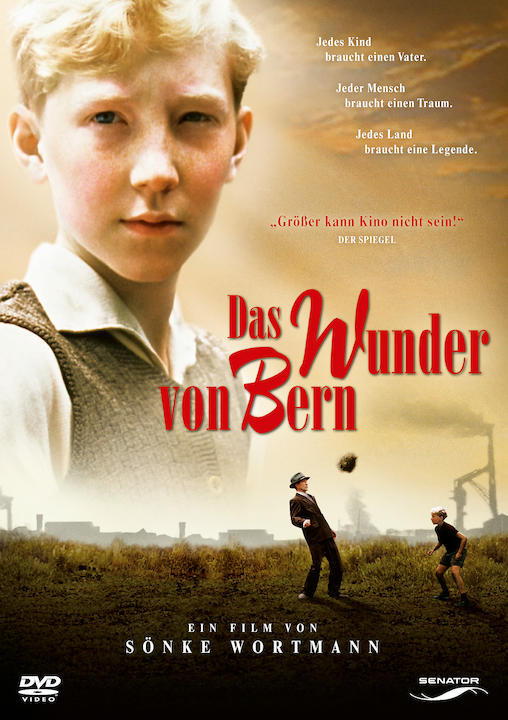
Join the conversation!